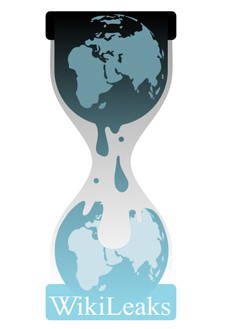2011-08-23 WikiLeaks Notes: Latest News on #Cablegate Releases & #WikiLeaks

This is a "WikiLeaks News Update", a daily news update of stories that are obviously related to WikiLeaks and also freedom of information, transparency, cybersecurity, and freedom of expression. All the times are GMT.
10:45 PM WikiLeaks will make 'several important announcements' via twitter.
So far, a confirmation that the claimed Domscheit-Berg destroyed leaks include the videos of a major US atrocity in Afghanistan. Likely referring to footage of the Garani massacre.
09:05 PM The United States attempted to send a group of 22 Uyghur Guantanamo Bay detainees to El Salvador, cables dating from the 2005-2007 period show. The group had been found innocent of terrorist charges. There were at least two resettlement requests to which the Antonio Saca presidency responded negatively.
Additionally, Mario Rivera, an official of El Salvador’s Ministry of External Relations, is cited in one of the cables, on the subject of Guantanamo. According to Rivera the country understood the necessity and respected the right of the U.S. to keep individuals detained in Guantanamo Bay.
06:10 PM Daniel Domscheit-Berg again confirms the destruction of 3500 WikiLeaks submissions, following an statement made yesterday where he claimed to only have destroyed the encryption keys to said material.
In an interview by OWNI journalist Olivier Tesquet, which took place today, Domscheit-Berg minimizes the significance of the destroyed material, claiming only 10-20% of the documents were relevant (‘dignes d’interêt’/‘real documents at all’ in french and english versions of this interview, respectively). He asserts that among the destroyed WikiLeaks source materials there were no documents on Bank of America.
For a better understanding of this matter, do read The Digital Vandal: Daniel Domscheit-Berg’s War Against Transparency, an insightful piece on the development of this complicated situation, ultimately detrimental to the causes of institutional transparency and freedom of information and more importantly, to the whistleblowers who risked their safety and possibly their lives to submit valuable information with the intent of seeing it published by WikiLeaks.
06:30 PM Dr. Suelette Dreyfus defended the release of classified diplomatic documents by WikiLeaks during her appearance on Australian television program Q&A.
"I would say that the US is at a crisis point because it has become a surveillance state and the [National Security Agency] is intercepting 1.7 billion emails and telephone calls," Dreyfus said.
"The reason that WikiLeaks has resonated with the population is because people are saying that the regulators of democracy have failed us and you do have corporate collapses because the regulators have failed us."
06:00 PM "A US State Embassy cable on former Secretary of State Condoleezza Rice’s visit to Libya in September 2008 released by WikiLeaks suggests oil companies aren’t likely to wait long to take advantage of the power vacuum and make deals with the rebels.", writes Kevin Gosztola for FireDogLake.
05:50 PM A list of recently released diplomatic cables containing significant information on Latin America is compiled every month by Dawn Paley.
03:00 PM Israel and the WikiLeaks cables by Dr Johnathan Spyer.
"…With regard to Israel, the cables depict a situation in which Iranian regional ambitions are the key foreign policy challenge facing the country. The cables show the extent to which Iranian ambitions now overshadow smaller conflict arenas in which Israel finds itself, for example in the ongoing conflict with the Palestinians and in the challenge posed by Hizballah in Lebanon. The cables also indicate the extent to which Iranian ambitions have transformed the nature of regional politics, with Israel acting together with key Arab states in efforts to frustrate Iranian ambitions.
Last, of course, the cables offer a glimpse into the very wide discrepancy between the public discourse on regional affairs to be found in the regional media and the true interests of Arab elites. By contrast, when expressed in private, Israeli positions largely resembled the public stances of Israeli governments. "